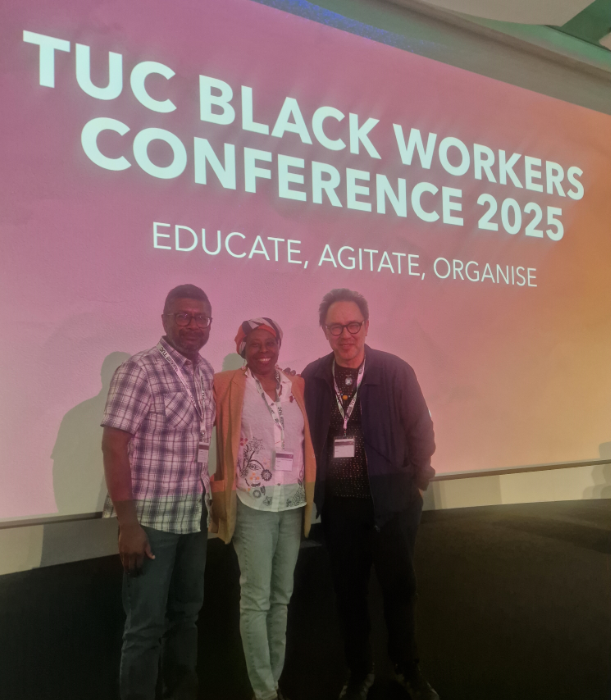Freelancing, gaps between work, performance anxiety…there's lots about working in the creative industries that can affect your mental wellbeing. Take a look at our tips below for looking after yourself this Mental Health Awareness Week.
At Equity, we're working to address the acute mental health crisis facing creatives. We know that the precariousness of the creative industries has a huge impact on the mental health of the workforce. So we're seeking to change this by joining together as trade unionists to improve pay, terms and conditions and fight discrimination at work. This summer we'll be launching a mental health commission to further examine how we can address this mental health crisis through our industrial, political and campaigning work.
Remember, if you need support with your mental health, as an Equity member you can access free counselling. Find out about counselling and other ways to get support on our mental health resources page.
1. Join a network of like-minded people
Talking to people in the same boat as us can really help if we're feeling low. Joining a peer network can be a great way to meet like-minded people working in the same field as you. They're a place to share issues and ideas, get informal support and can stop you feeling isolated, especially if you work on your own.
There are lots of networks in the entertainment and creative industries, including Equity branches and Equity networks covering everything from burlesque to storytelling. Find more peer networks on the ArtsMinds website.
2. Be kind and don't compare yourself to others
As a creative worker it can be easy to compare yourself to others. Treat yourself compassionately and value yourself, regardless of what you have achieved and your circumstances. While it can be helpful to strive to get better at what you do, it's also unhelpful and unrealistic to expect perfection in yourself or in others. Challenge and talk back to your 'inner critic'. Set yourself realistic short and long-term goals if there is something you'd like to achieve.
Read more tips for looking after yourself on the British Association for Performing Arts Medicine's (BAPAM) self-care factsheet
3. Feeling in control
Performers report they often feel they have little control over their own career and this is a trigger for anxiety or depression. This feeling is likely to have been heightened by the pandemic. ArtsMinds has lots of suggestions and resources for helping you take control, including training from the Federation of Entertainment Unions on resilience, goal-setting and not taking rejection personally. Find resources on taking control on the ArtsMinds website
4. Dealing with performance anxiety
Performance anxiety, or stage fright, is one of the most common challenges facing any performer. Managing performance anxiety is a skill and BAPAM have lots of strategies to help you cope such as preparation and relaxation. Read more in the BAPAM factsheet on performance anxiety.
5. Take a moment for mindfulness
Juggling life and work, or looking for work, can take its toll on you emotionally. But regularly finding a moment to be fully in the present can have long-term health benefits. Try using your breathing, a word or a sound as an anchor. Become familiar with and kind towards the thoughts that wander across your mind. Find more tips on mindfulness in BAPAM's self-care factsheet.
More ways to look after yourself
You are not in this on your own. Equity is here to listen to your concerns if you feel that any mistreatment or unfairness in your working life is contributing to your poor mental health. You can call us on 020 7379 6000 to speak to someone confidentially.
You can also find ways to get support, including free counselling, on our mental health resources page.
ArtsMinds, a joint initiative between Equity, BAPAM, The Stage and Spotlight, is an information hub with specialist support for creative workers.
The British Association for Performing Arts Medicine have lots more factsheets and resources for looking after your wellbeing, put together in partnership Equity: Performing Arts Medicine Resources.




